Logic
Conceptions of logic
- Logic as a way to evaluate reasoning
- Logic as a way of looking at language in general
Concpets of Logic
- Informal logic
- Formal logic
- Symbolic logic
- Mathematical logic
Types of Logic
- Syllogistic logic
- Propositional logic
- Predicate logic
- Modal logic
- Informal reasoning and dialectic
- Mathematical logic
- Philosophical logic
- Computational logic
- Non-classical logic Symbolic Logic
- Constants - symbols with fixed meaning
- Variables - symbols with no fixed meaning
- for variables: x, y, z
- for statements: p and q
Statements
- have a subject and predicate
- composed of atleast one symbol Subject
A subject is a term that a predicate says something about.
- part of sentence frame
- topic of a sentence
- main argument of verb Predicate (denoted by capital alphabets)
A predicate is a term that says something about a subject.
- part of sentence frame
- comments on subject
- verb and all non-subject arguments
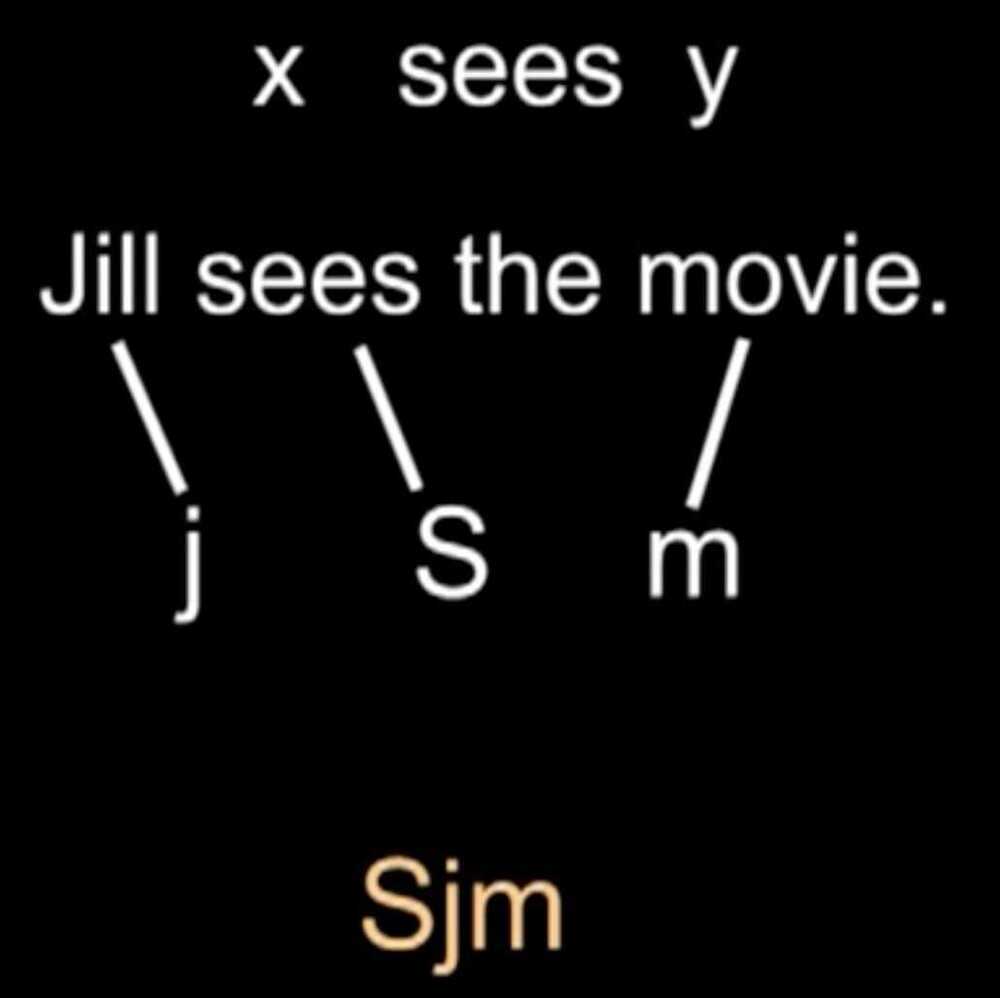
Predicate comes first
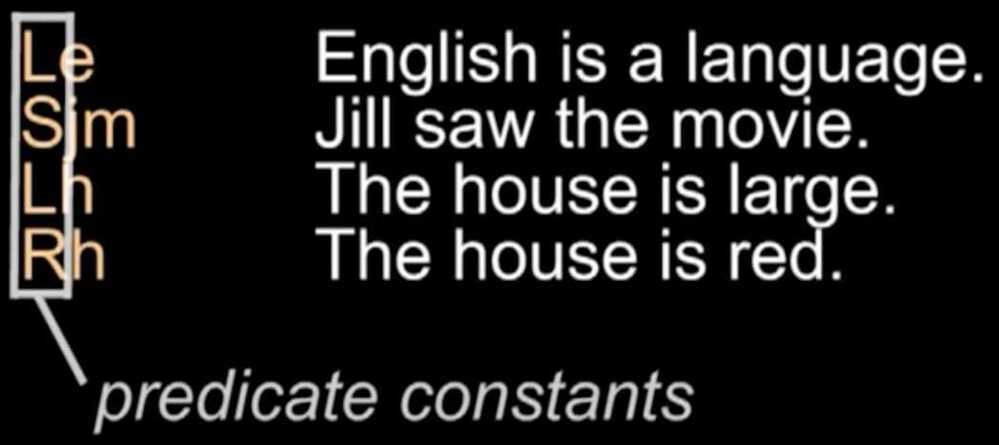
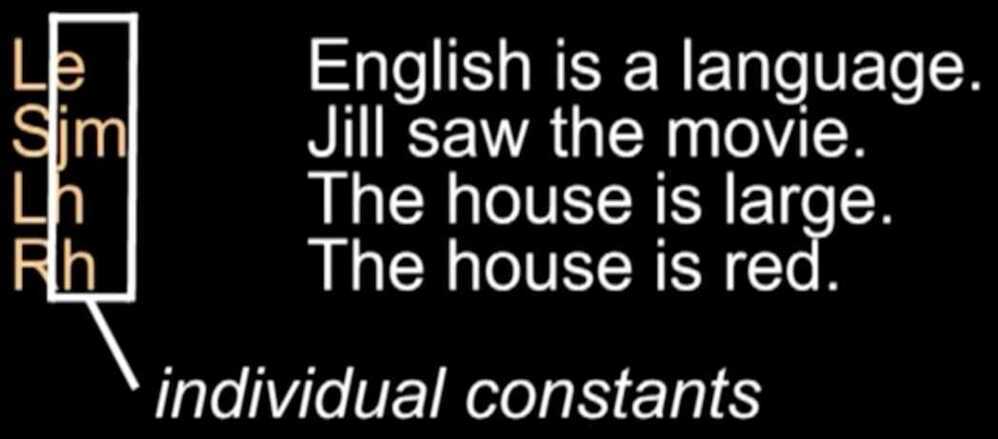
Valency
This is the number of terms that predicate says something about.
Lx,Rx - 1 slots (x), Valency - 1
Sxy - 2 slots (x, y), Valency - 2
Gxyz - 3 slots (x, y, z), Valency - 3

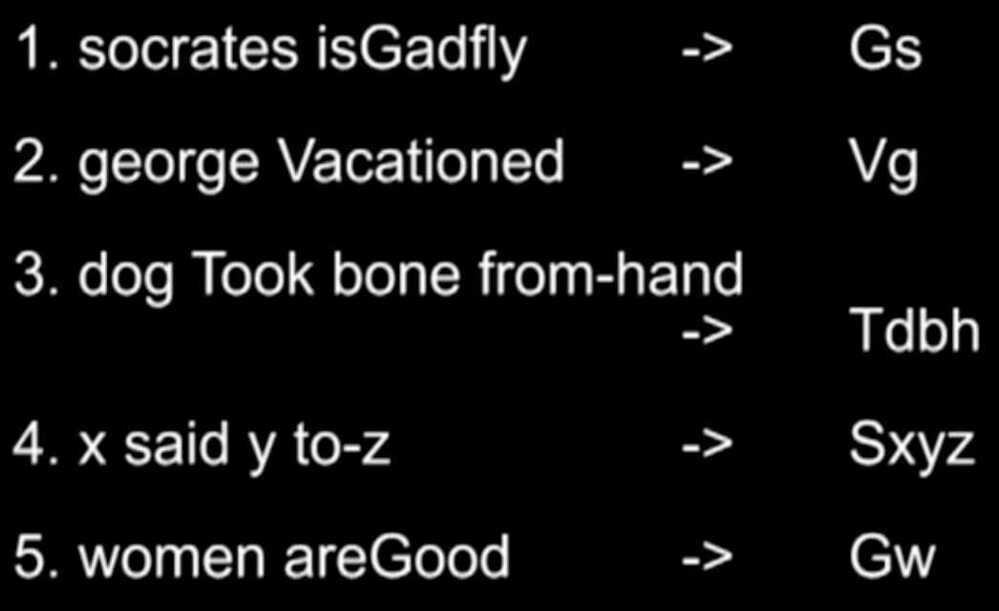
Quantifiers & Bound Variables
- quantity: how many?
- examples from language include singular (1) & plural (1 or more)
- three logical quantifiers
- all
- some (at least 1)
- none
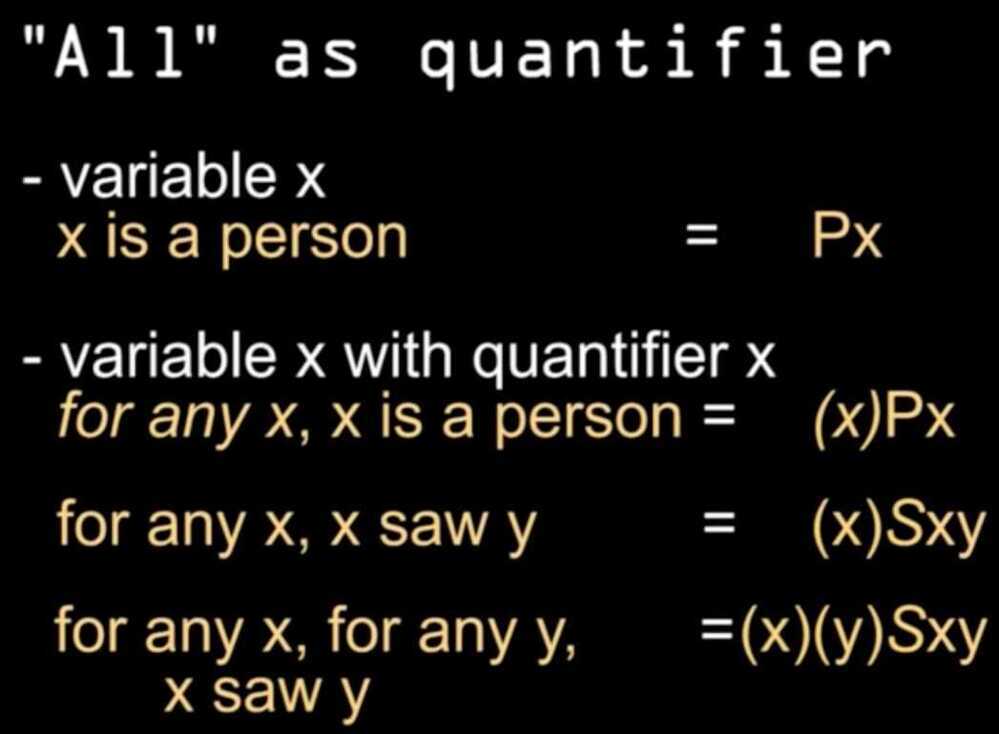
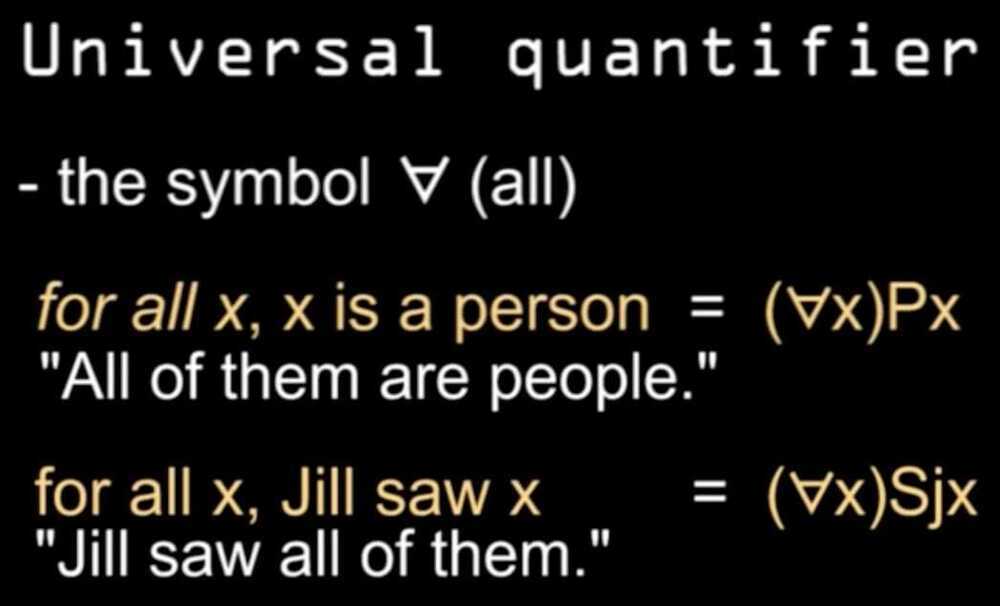
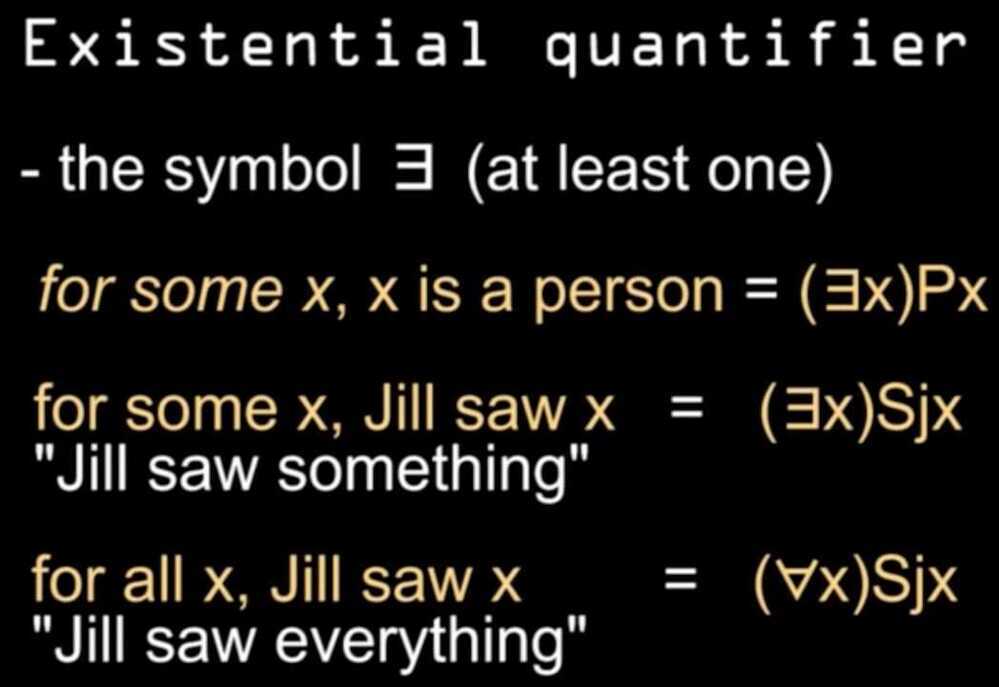
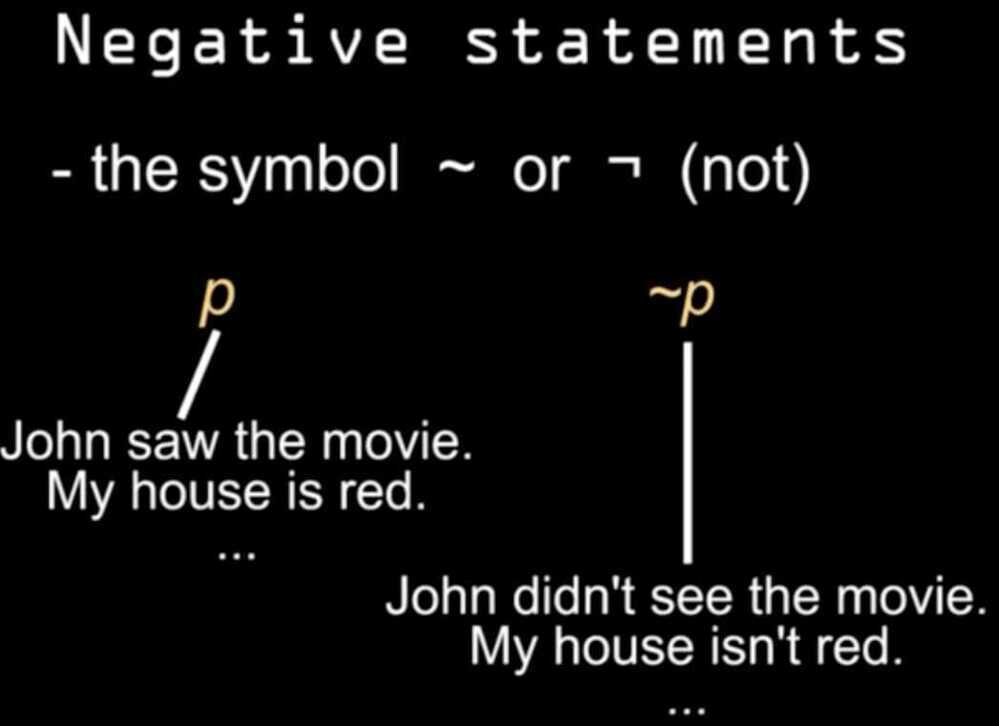
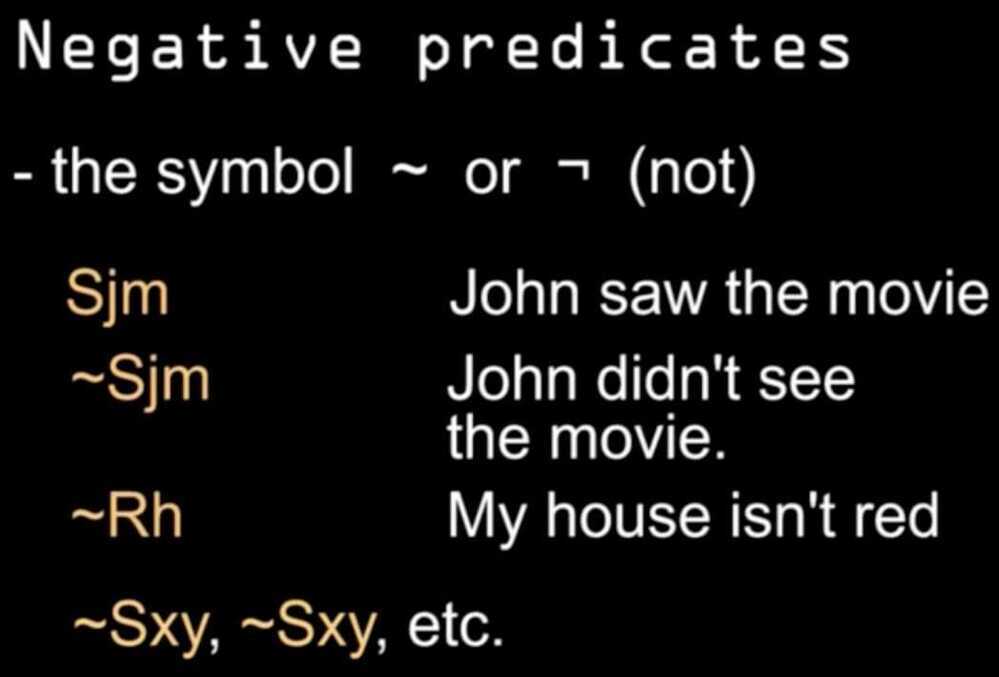
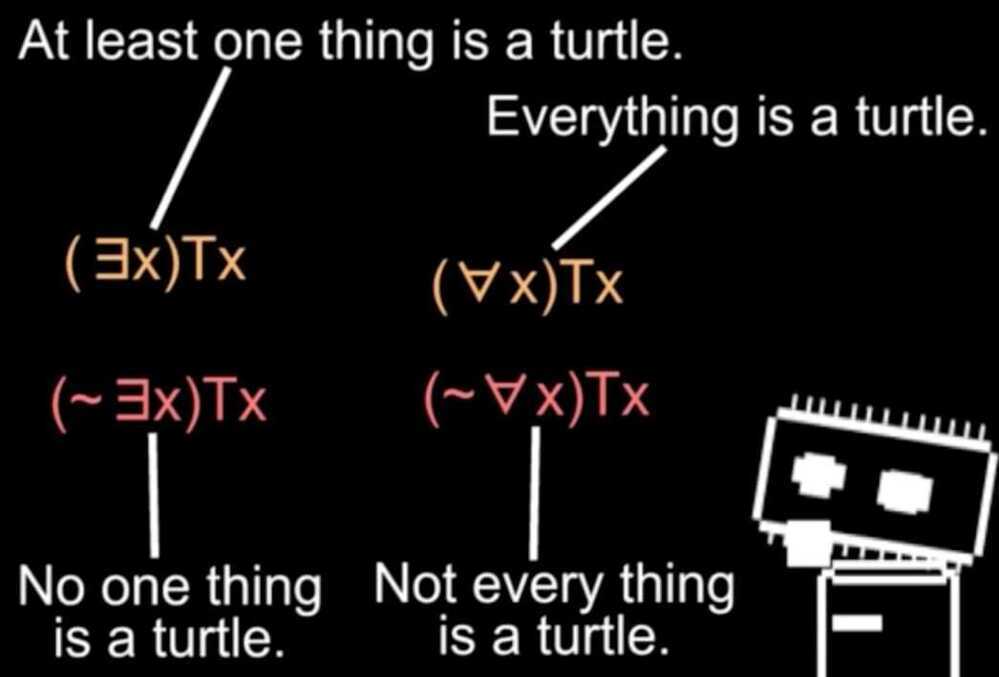
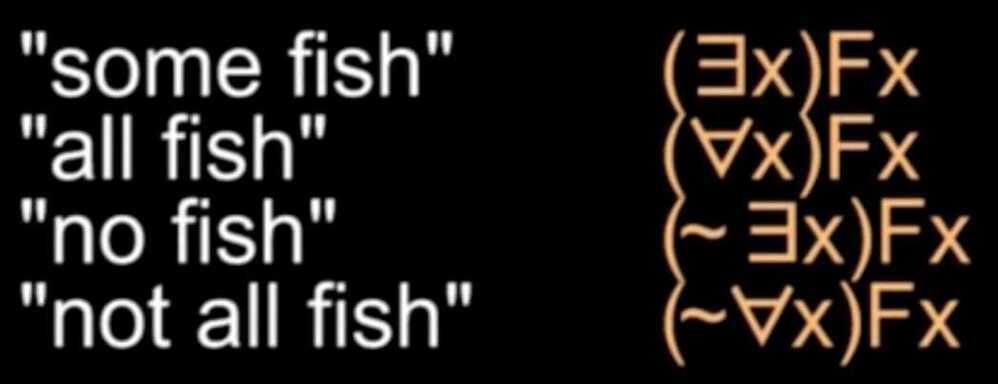
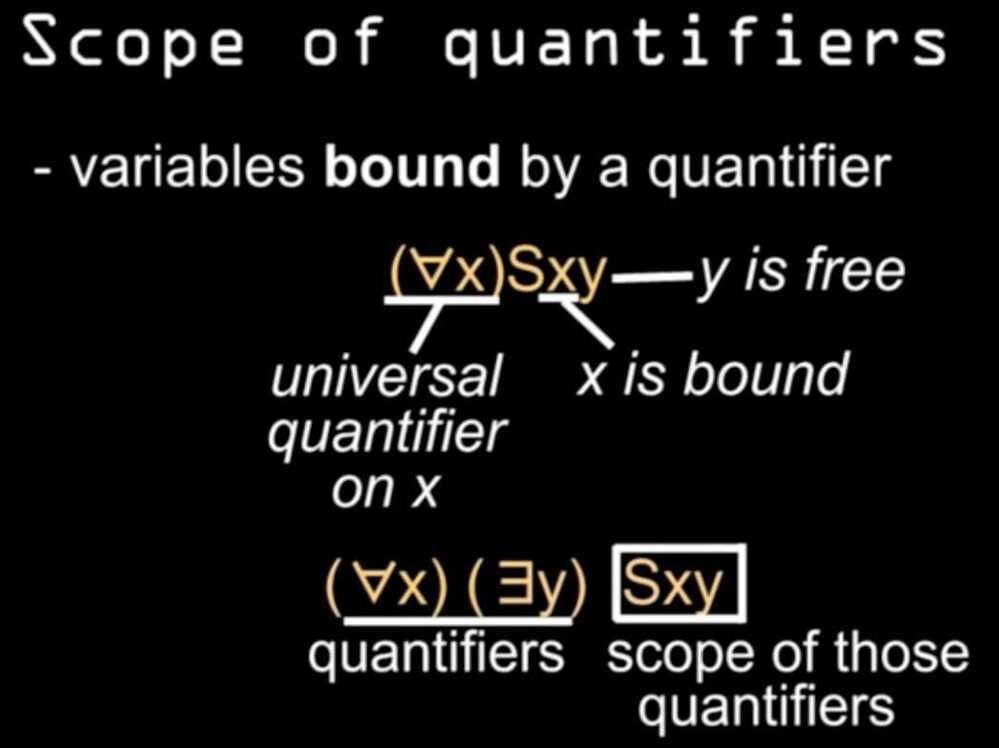
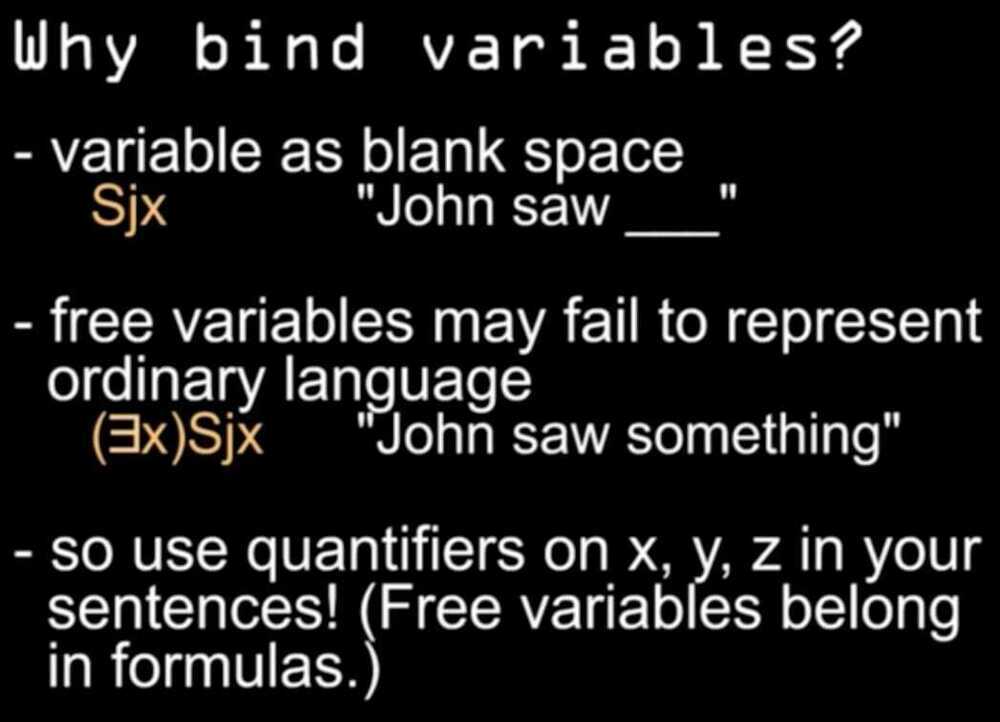

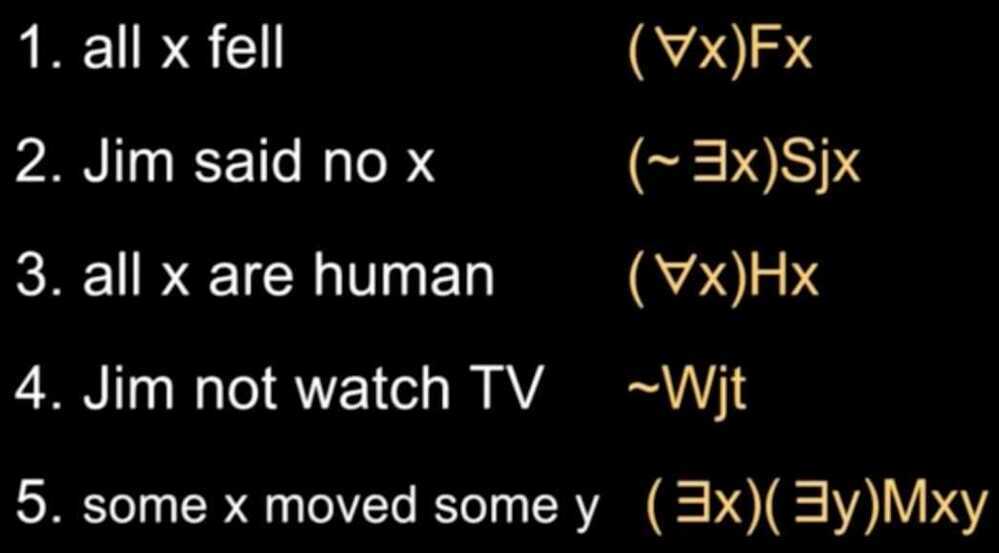 # Logical Operators/Connectives
# Logical Operators/Connectives
- Logical conjuction
- join symbols with "and" (. & Λ)
- conjuction with statements p.q
- conjunction with variables x.y
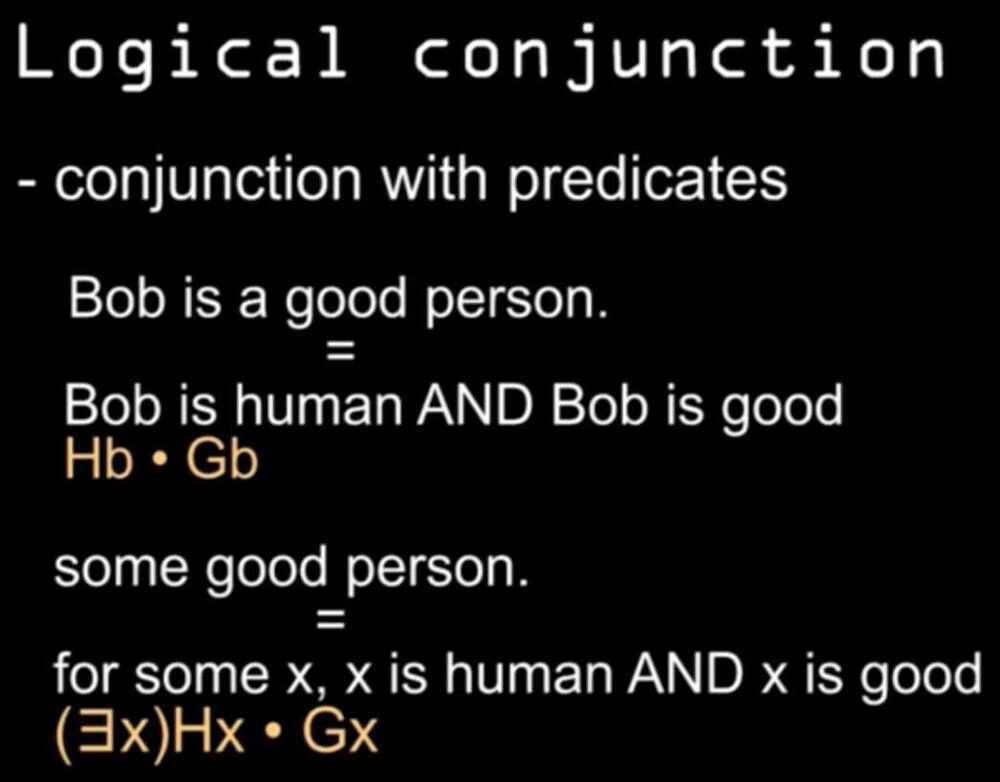 - Logical disjunction
- Logical disjunction
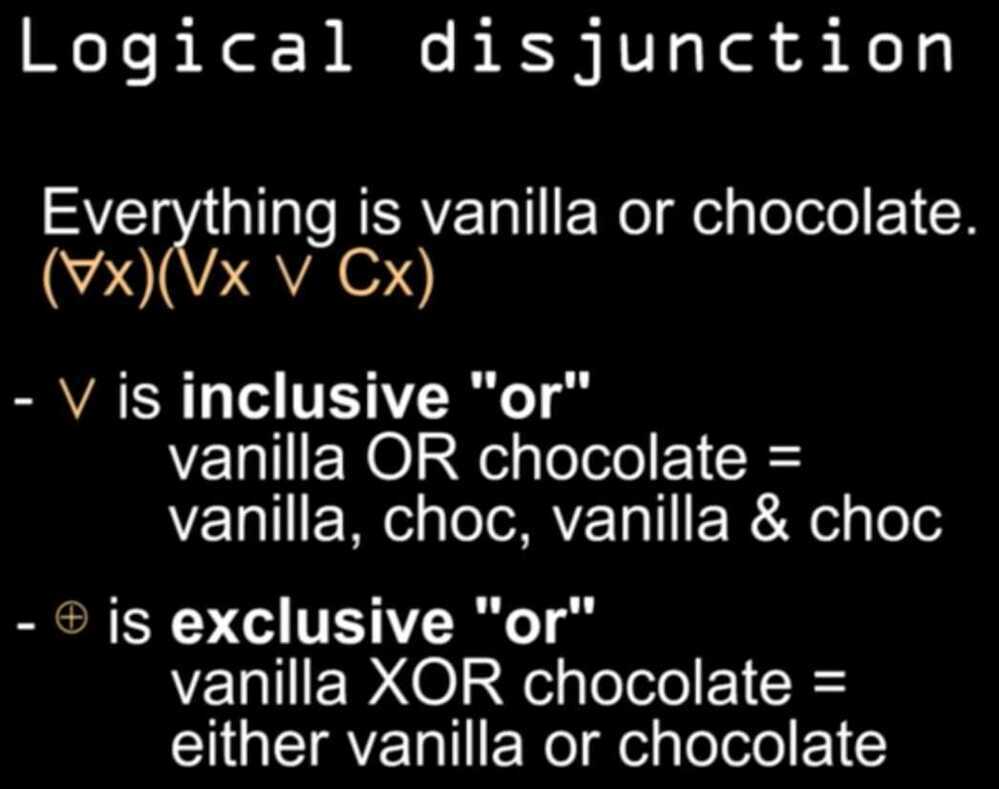
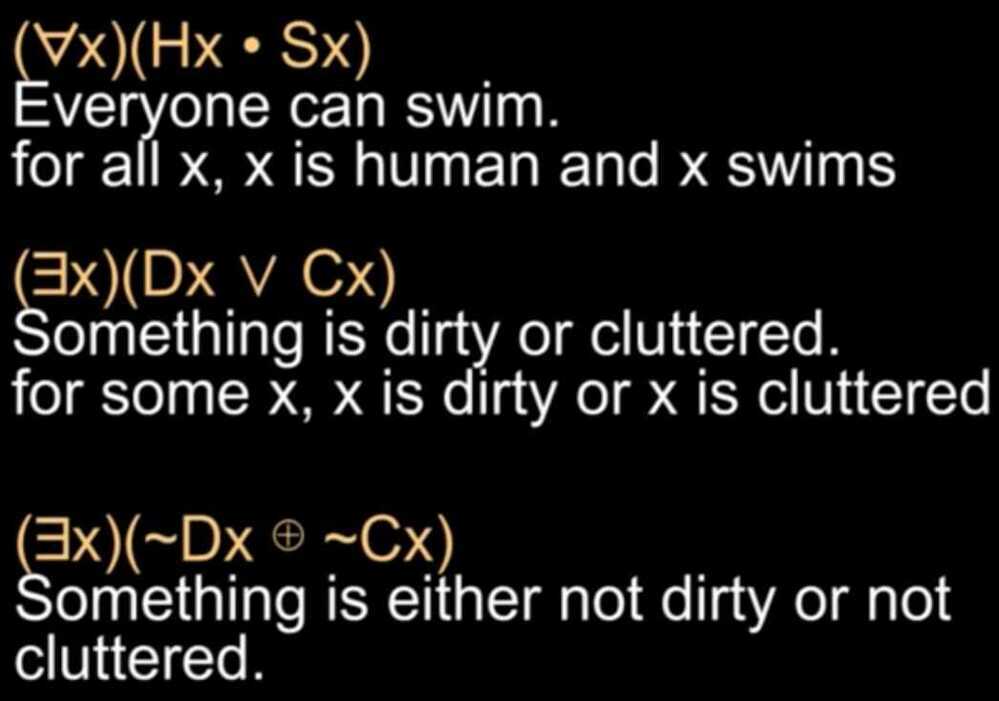
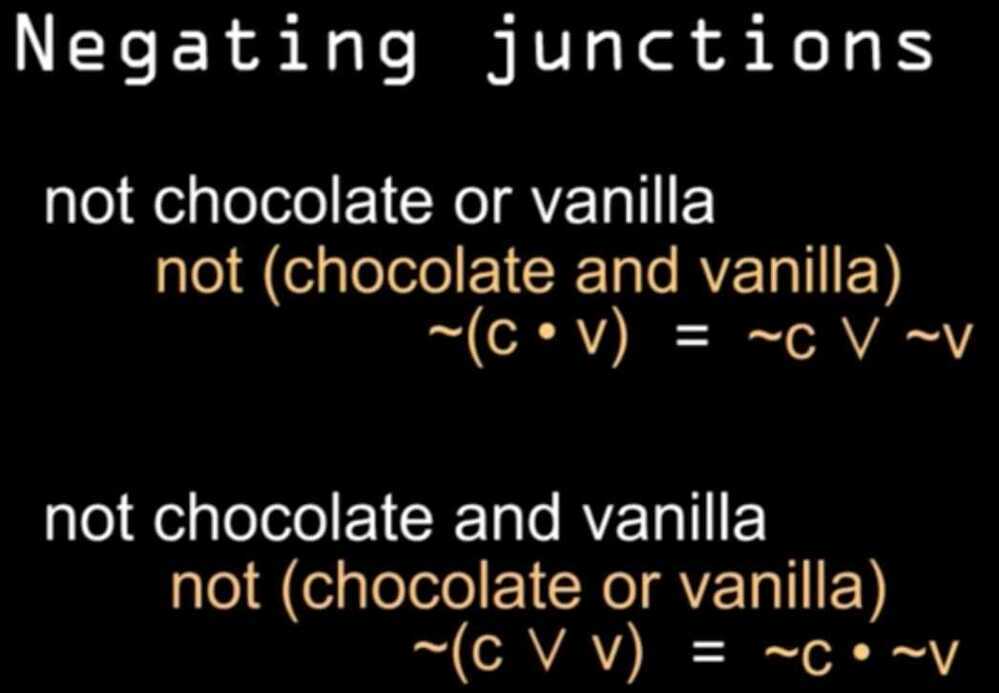
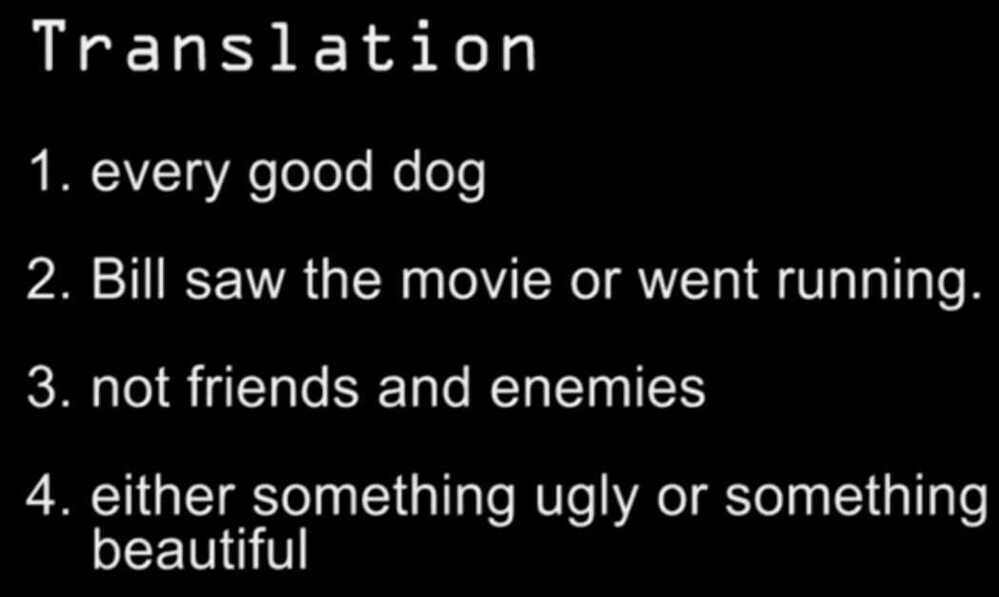
Logical Equivalence ( = )
Conditional
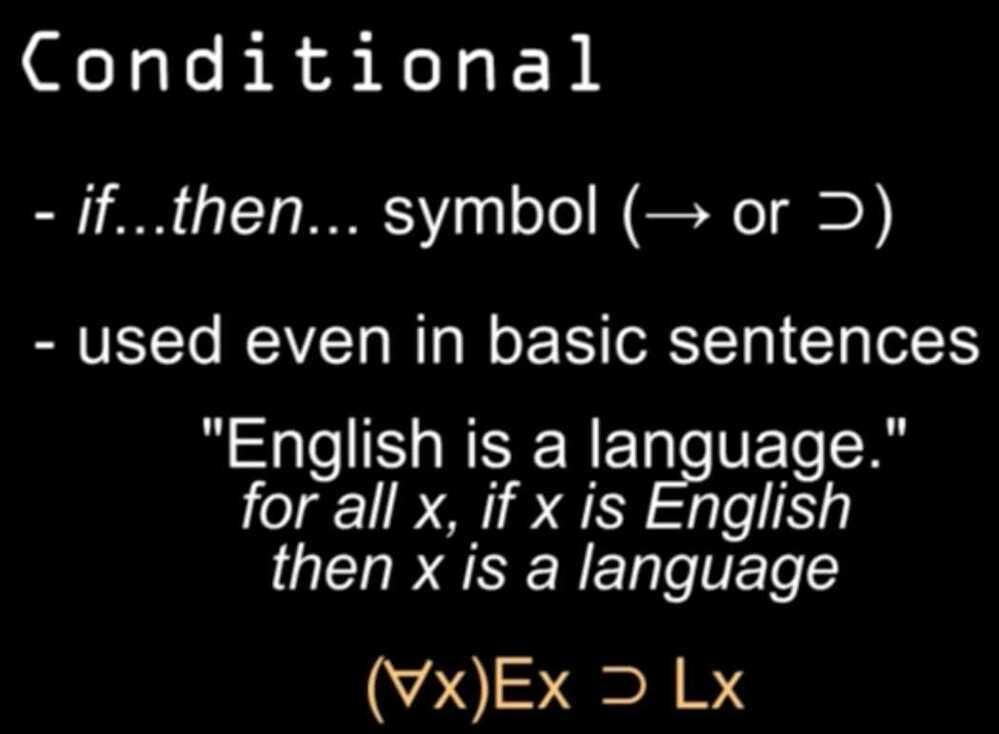

Biconditional
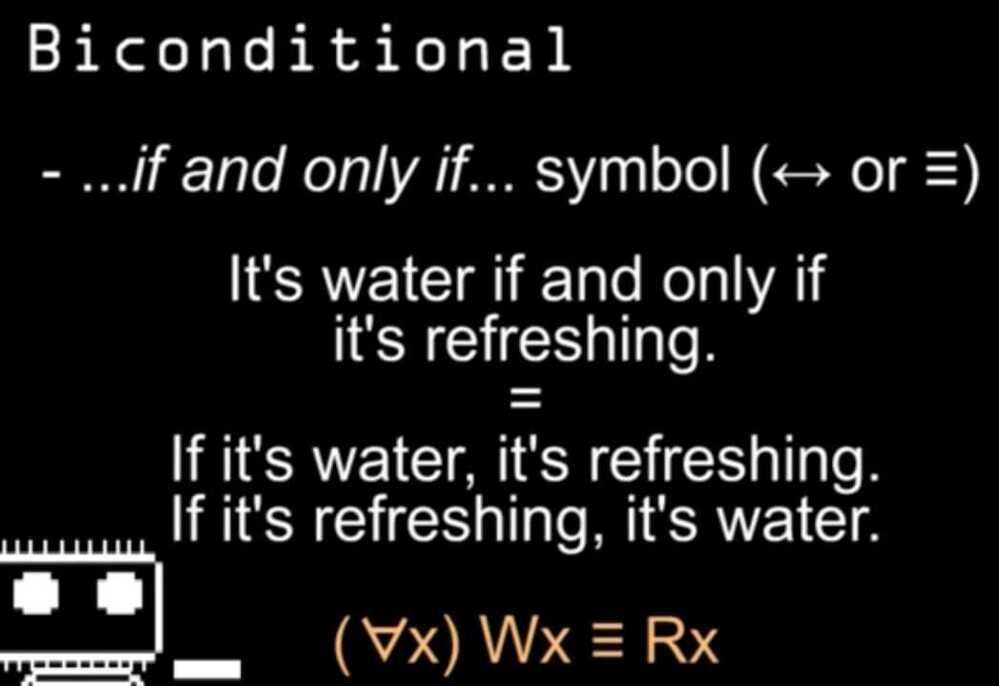

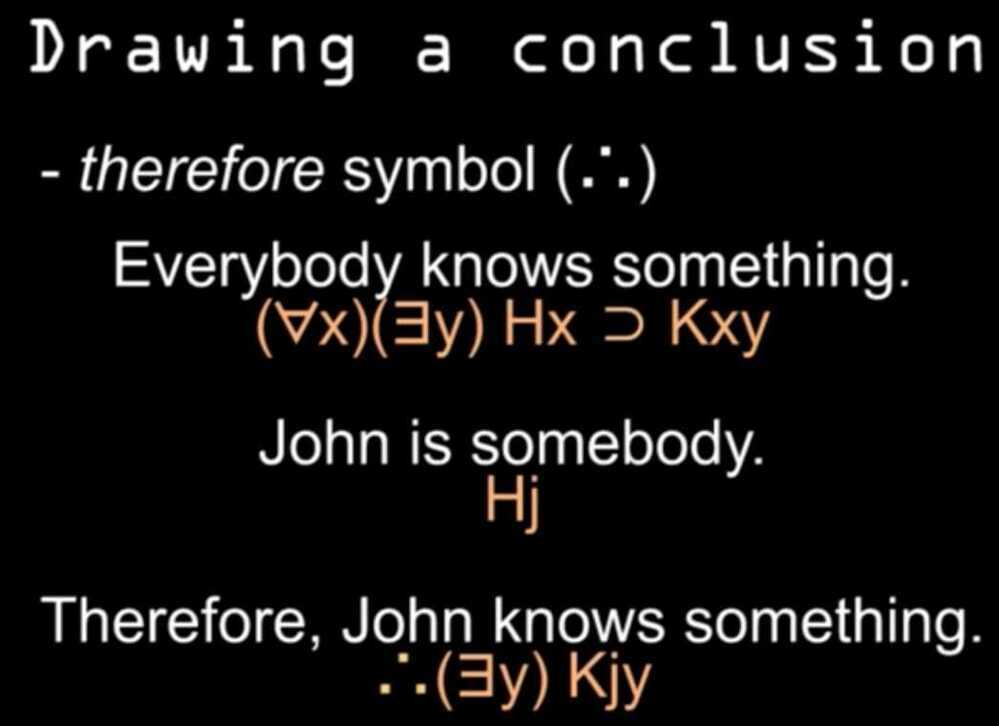
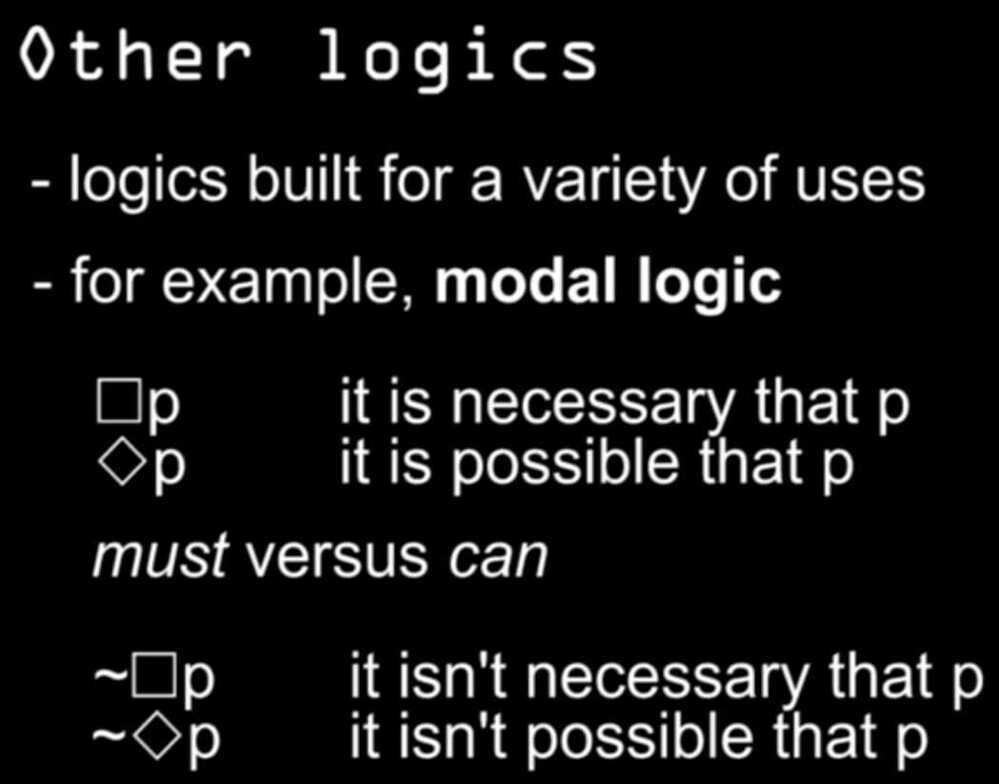
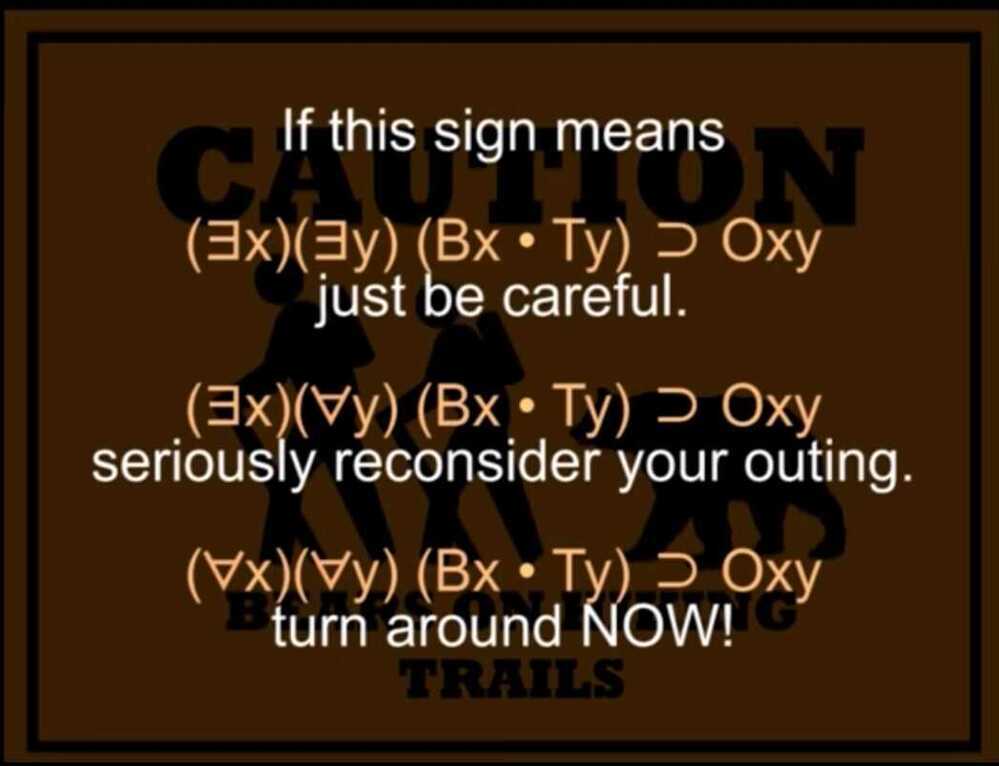

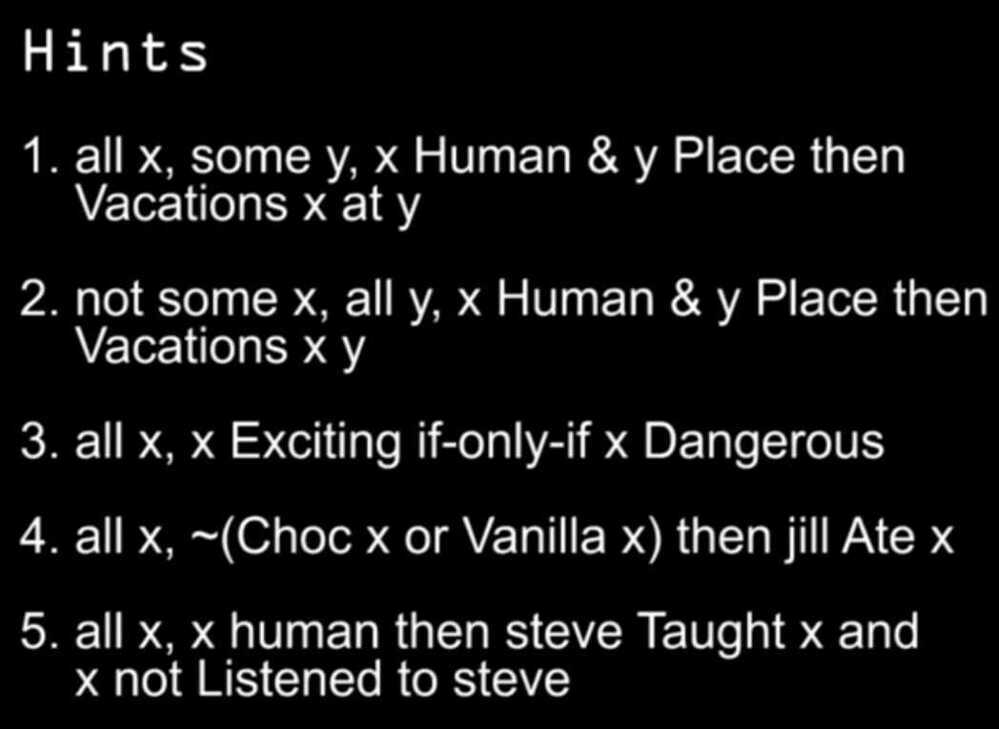
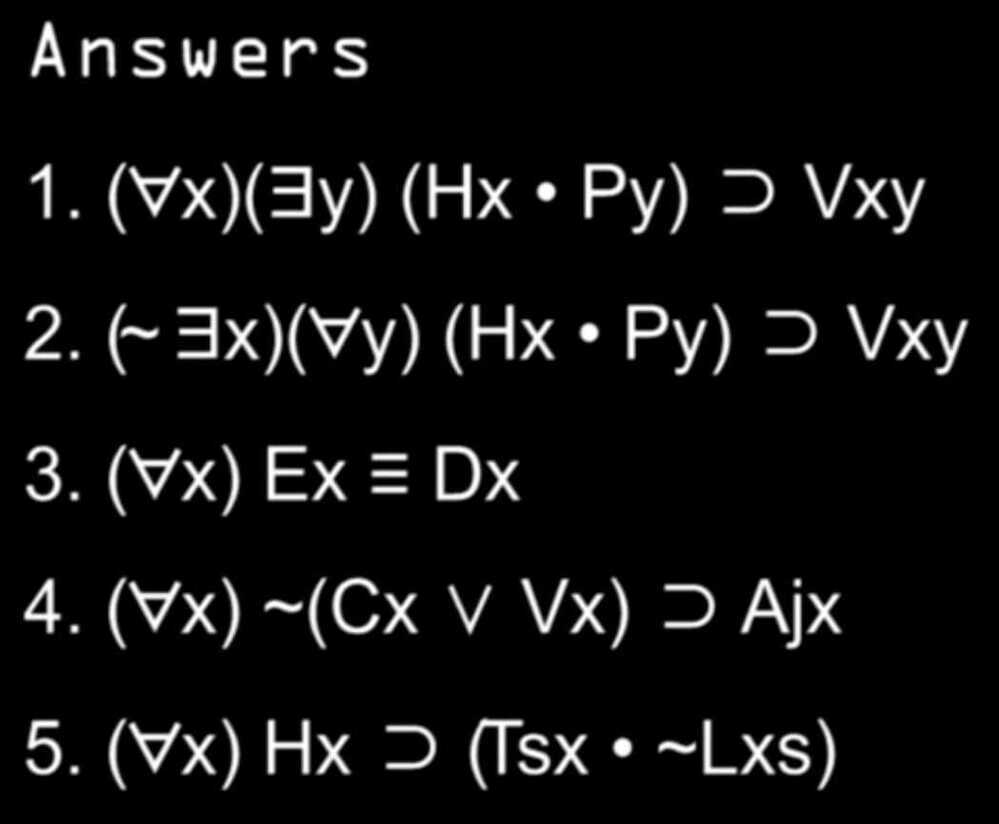
The language of sets & probability
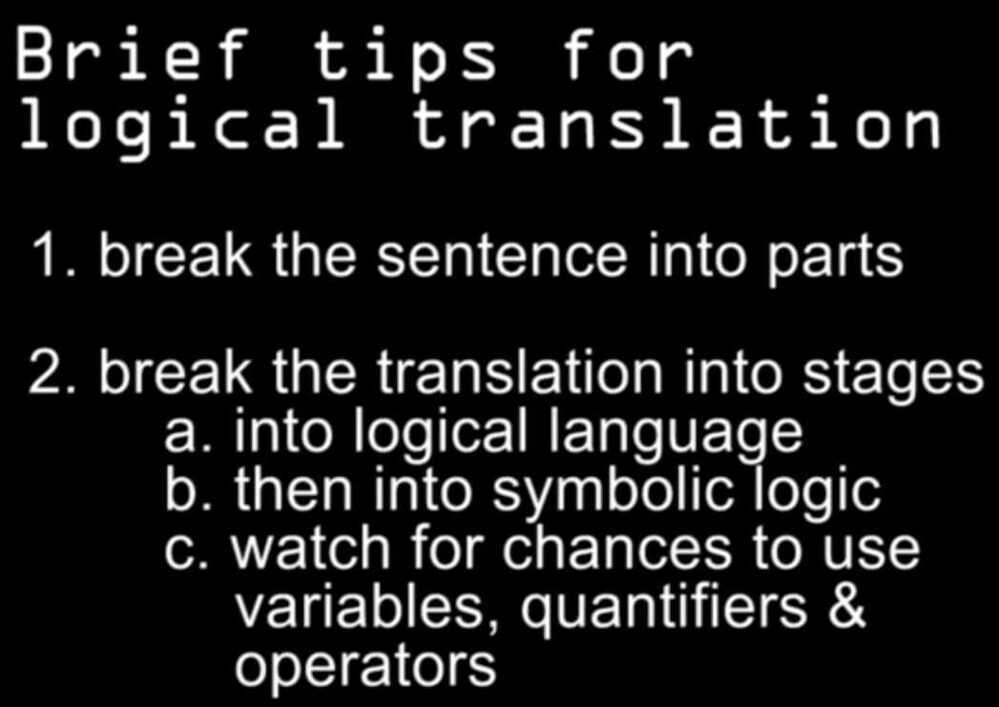
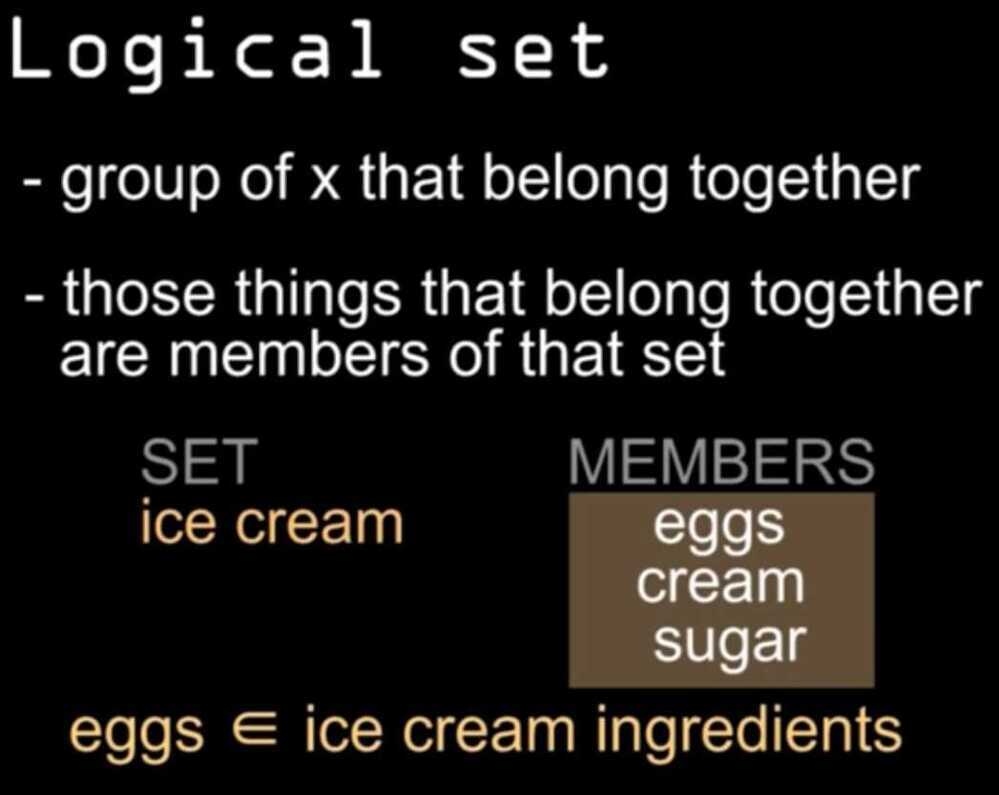 - Intersection
- Intersection
- Union
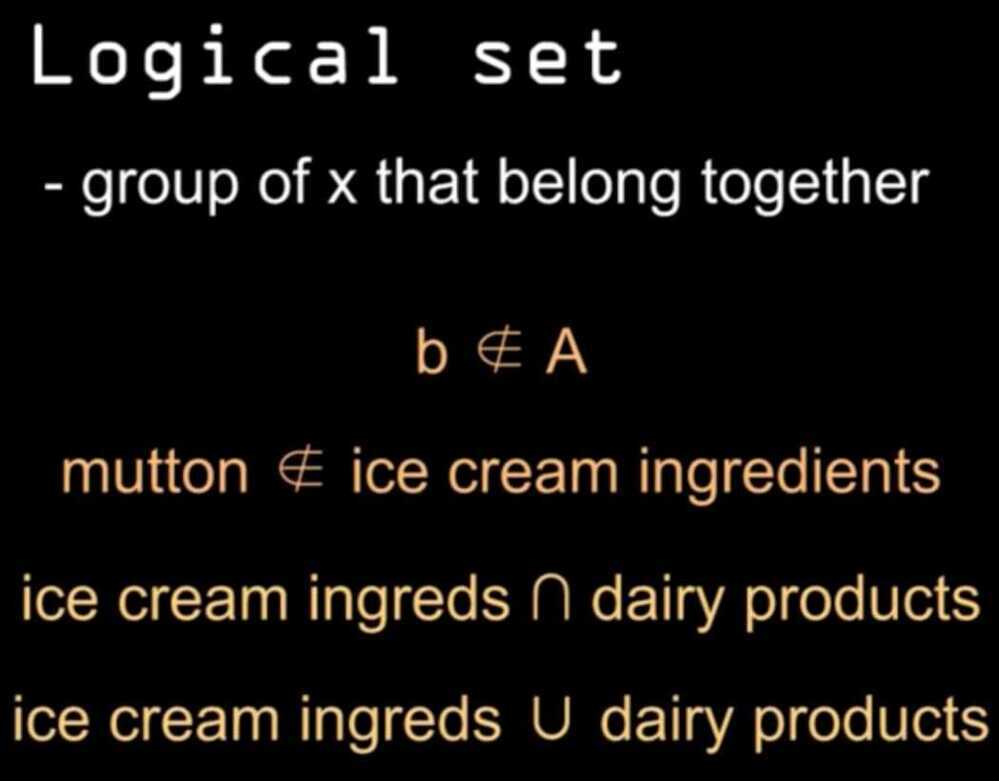


Probability
- probability of A or B, P(A U B)
- probability of A and B, P(A ∩ B)
- probability of A given B, P(A | B)
- probability of B given A, P(B | A)
Other Logics
- Inverse
- Converse
- Contrapositive
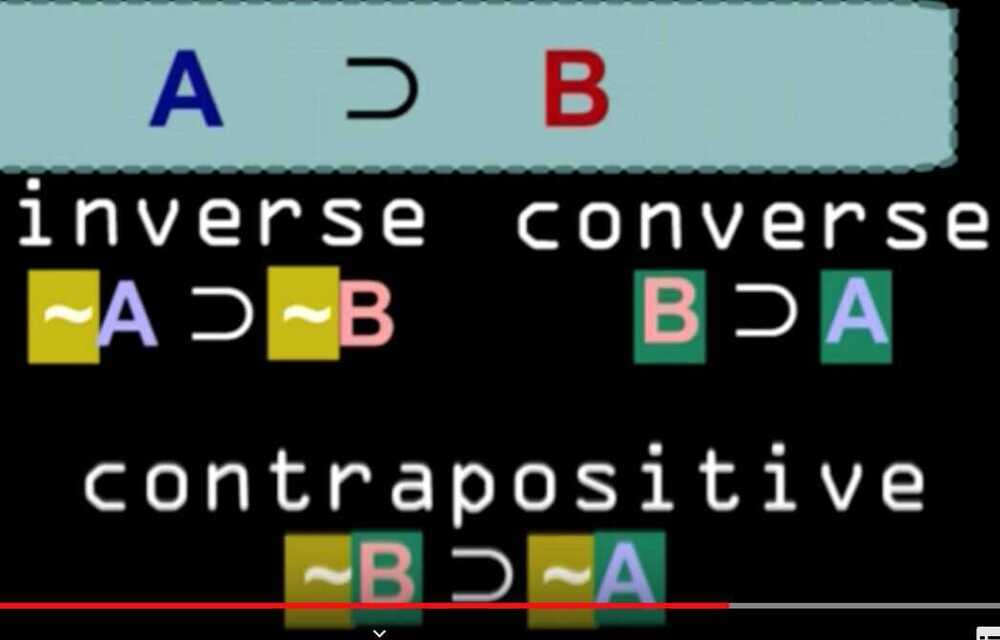
Fallacy
A logical fallacy allows an argument to persuade even though the conclusion does not follow the premises.
- Ad Baculum - I'll hit you unless you accept that A is C. Therefore A is C
This only supports the conclusion I'll hit you, Not that A is C
- Ad Hominem - John's an idiot and he says that A is not C. Therefore A is C
This only supports the conclusion One idiot doesn't agree. Not that A is C.
- Ad Verecundiam - Experts agree that A is C. Therefore A is C
This only supports the conclusion Experts agree. Not that A is C.
- Ad Misericordiam - It will be so tragic if A isn't C. Therefore A is C
This only supports the conclusion It's tragic. Not that A is C.
Logic
- Arguments (premises, conclusion)
- Validity
- Truth values
- Soundness
- Basic Syllogism
- Deduction (deductive reasoning)
- Induction (inductive reasoning)
- Cogent argument
- coherence
- correspondence
- foundationalism
- pragmatic
- consensus
- deflationary